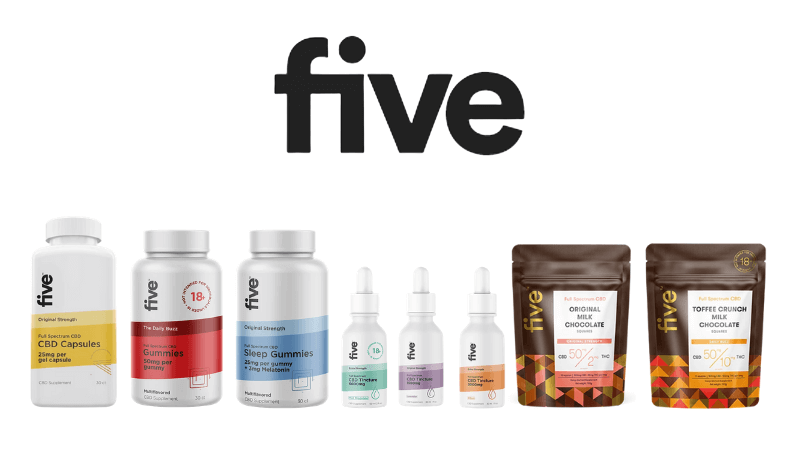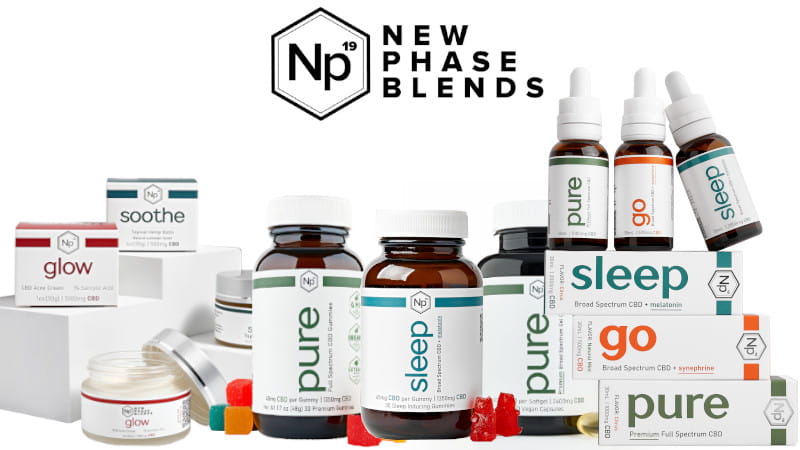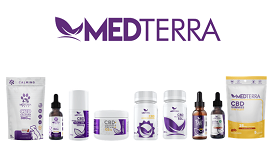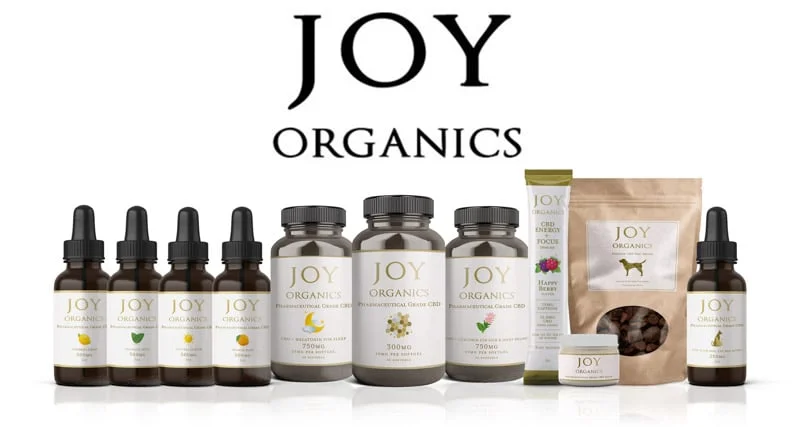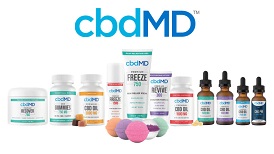What is THCA and Why Should I Care?
THC is marijuana’s primary psychoactive substance responsible for causing users to get high. However, before it becomes THC, it starts in its acid form called THCA. Essentially, THCA slowly converts into THC.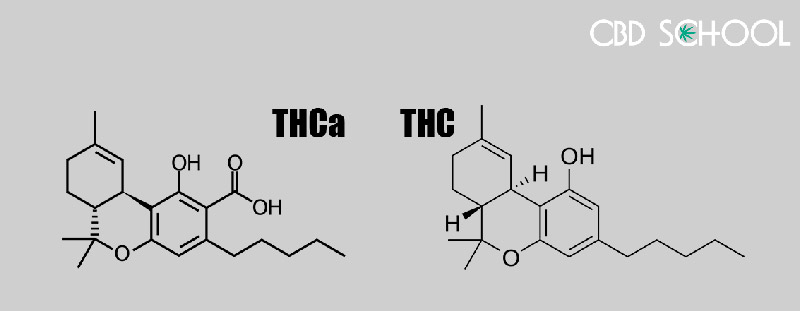 In the same manner, CBD starts as CBDA. Let us dive deeper and take a closer look.
Although the cannabinoids THC and CBD are prominent in cannabis research, most people do not know that both chemical compounds are not entirely available in fresh or raw cannabis buds.
Both are present as cannabinoid acids.
In the same manner, CBD starts as CBDA. Let us dive deeper and take a closer look.
Although the cannabinoids THC and CBD are prominent in cannabis research, most people do not know that both chemical compounds are not entirely available in fresh or raw cannabis buds.
Both are present as cannabinoid acids.
Tetrahydrocannabinolic Acid (THCA) Explained
Tetrahydrocannabinolic Acid is a precursor to THC, but like all other cannabinoids, it is a derivative of another cannabinoid acid called cannabigerol acid (CBGA). All other cannabinoids trace their parentage to CBGA. THCA and THC may look structurally similar, but they have very significant differences at their molecular level. These minor differences produce diverse effects on the human body. The most notable difference is that THC causes you to get high while THCA does not.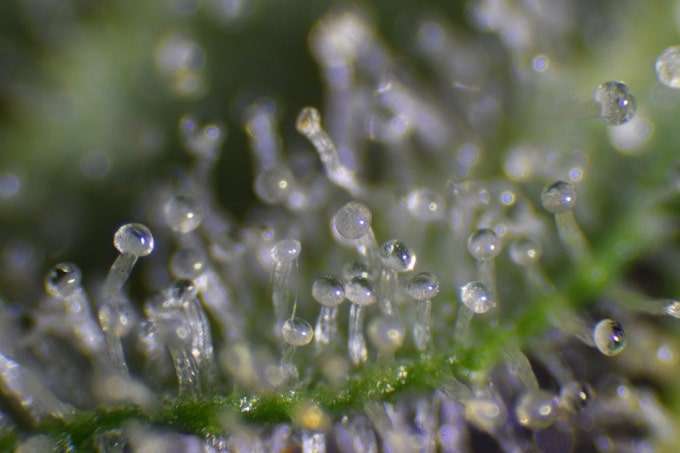 As fresh cannabis buds (flowers) begin to dry, THCA slowly converts into THC. Hence, live cannabis flowers require decarboxylation to activate or produce THC. This is why if you consume cannabis raw, there are no psychoactive effects.
Decarboxylation is a process that removes the carboxylic acid group of atoms from the THC to deliver the psychoactive THC.
When you consume dry marijuana buds, you may not feel any psychoactive effect because the THCA has not been converted yet. To consume cannabis in its raw form is not popular among recreational cannabis users because it does not produce any euphoric high.
This is the main difference between raw and live cannabis, and cannabis products that have been refined and made into cannabis medicine. The processed THC interacts with cannabinoid receptors, where as THCA doesn’t seem to.
Although it does not have psychoactive effects, it is still a vital cannabis compound. We cannot have THC without THCA in the first place.
The main takeaway here is that in living, or a freshly harvested plant, there is little to no THC, only THCA.
As fresh cannabis buds (flowers) begin to dry, THCA slowly converts into THC. Hence, live cannabis flowers require decarboxylation to activate or produce THC. This is why if you consume cannabis raw, there are no psychoactive effects.
Decarboxylation is a process that removes the carboxylic acid group of atoms from the THC to deliver the psychoactive THC.
When you consume dry marijuana buds, you may not feel any psychoactive effect because the THCA has not been converted yet. To consume cannabis in its raw form is not popular among recreational cannabis users because it does not produce any euphoric high.
This is the main difference between raw and live cannabis, and cannabis products that have been refined and made into cannabis medicine. The processed THC interacts with cannabinoid receptors, where as THCA doesn’t seem to.
Although it does not have psychoactive effects, it is still a vital cannabis compound. We cannot have THC without THCA in the first place.
The main takeaway here is that in living, or a freshly harvested plant, there is little to no THC, only THCA.
How Unique is THCA?
It does not occur on its own in live cannabis, or cannabis products. All cannabinoids in the plant come from cannabigerolic acid (CBGA), a cannabinoid acid considered the parent molecule of all cannabinoids. CBGA is also the primary molecule that produces the three main cannabinoid branches, specifically THCA, CBDA, and CBCA. With the application of heat and other elements, it converts into THC. Related Read: CBD and THCV – All You Need to Know CBG is an essential molecule because it synthesizes into any three cannabinoid acids. Without CBG, we would not have THC, CBD, and CBC. THC plays a crucial role in the death of cannabis plants. In a research study published in 2008, THCA causes the death or necrosis of plant cells in cannabis leaves. The death of plant cells is essential in the physiological development of the plant. In short, it plays a crucial role in the immunity of the plant against microbial pathogens and the full development of the plant. In addition, it functions as a sort of protection against the damaging effects of UV radiation.Are There Any Health Benefits of THCA?
Preliminary studies on the subject show that there are benefits that this molecule is not just some useless non-psychoactive cannabinoid found in cannabis. There actually may be some pretty noticeable health benefits that come along with supplementing with THCA. It offers some potential in the field of medicine. Some of its most notable benefits include the following:Anti-inflammatory
Inflammation causes inconvenient pain throughout the body. If we can control inflammation, we can also prevent pain.Enjoying your read? Sign up to be a part of the CBD School community, and we’ll send you a free eBook called The Beginner’s Guide to CBD. It will get you caught up in all things CBD. Additionally, you’ll get updates on the best CBD products and discounts in the industry.
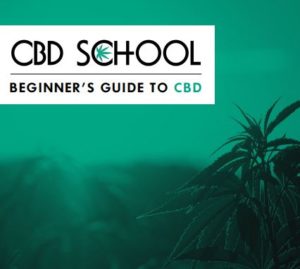
Neuroprotective Antioxidant
With Parkinson’s disease, the neurons that produce dopamine die off, contributing to the disordered movement. A 2012 issue of Phytomedicine shows a study on THCA and how it protects against an oxidative neurotoxin that contributes to Parkinson’s disease. The study on other health benefits concludes that THCA and THC preserve and prevent the death of dopamine-producing neurons.
Other compounds in cannabis are also neuroprotective antioxidants. They help protect the nerve cells from the damaging effects of free radicals and oxidative stress. Free radicals form as a result of pollution and exposure to UV radiation.
THCA can prevent the premature death of nerve cells as an antioxidant. The neuroprotective effects of THCA and other cannabinoids are beneficial in the treatment of Parkinson’s disease and other neurodegenerative diseases, such as Alzheimer’s disease and multiple sclerosis.
The study on other health benefits concludes that THCA and THC preserve and prevent the death of dopamine-producing neurons.
Other compounds in cannabis are also neuroprotective antioxidants. They help protect the nerve cells from the damaging effects of free radicals and oxidative stress. Free radicals form as a result of pollution and exposure to UV radiation.
THCA can prevent the premature death of nerve cells as an antioxidant. The neuroprotective effects of THCA and other cannabinoids are beneficial in the treatment of Parkinson’s disease and other neurodegenerative diseases, such as Alzheimer’s disease and multiple sclerosis.
Anti Prostate Cancer
Cancer is considered the number one cause of death in many developed countries. As mentioned earlier, THCA causes the natural death of plant cells during the development of cannabis. Surprisingly, this ability may prove beneficial in cancer treatment. Preliminary research in 2013 indicates that THCA may inhibit the development of prostate cancer cells. According to the study, THCA produces an anti-proliferative effect against prostate cancer cells. Although CBD and CBC are still the most effective cannabinoids against cancerous cells in the prostate, consuming THCA may still be beneficial. Since THC may trigger the death of cancer cells, consuming it along with THCA may entourage the entourage effect in cancer treatment. Many books about CBD provide valuable insight into the cancer-fighting properties of cannabis. I’d like to be clear here. The health benefits of THCA do not include it being able to kill cancer cells, or even fight cancer effectively. All we are doing is reviewing some evidence in regards to THCA and how it interacts with cancer.Anti-emetic
A 2013 study published in the British Journal of Pharmacology suggests that THCA is an anti-emetic like cannabinoids. The compound reduced nausea and vomiting in the test subjects. Although THC has antiemetic properties, THCA might be a better alternative because it does not have any psychoactive properties. Nausea and vomiting usually occur after chemotherapy. Hence, THCA may help prevent nausea and vomiting right after a chemo session. In addition, THCA can increase appetite. Most patients experience appetite loss after chemotherapy. Aside from its antiemetic properties, THCA can also help induce hunger.Analgesic
A 2008 study shows that THCA and THC trigger the TRPA1 cell receptor to control pain perception. Mice with no TRPA1 receptor do not usually respond to any pain stimulation. This indicates that TRPA1 plays a crucial role in how we sense pain. THCA is not the only painkiller found in the cannabis plant. CBD and THC also help reduce chronic pain. Therefore, THCA may enhance the painkilling properties of significant cannabinoids. Aside from being an analgesic, THCA may suppress muscle spasms and aid in insomnia. Nevertheless, it may have other potential benefits, but more research is needed. A lot of the anecdotal evidence suggest that THCA might actually be a major competitor of CBD in the near future.How to Enjoy THCA
Smoking flowers is not the best way to enjoy the medicinal benefits of THCA. Incinerating the flower turns THCA into THC. If you love to smoke buds and still want to get the benefits of cannabis, consider reading some exciting info about CBD pre-rolls. The simplest way is to consume raw cannabis because it contains an abundance of THCA. Unlike THC, it will not produce any psychoactive or intoxicating effects, but it will provide many medical benefits. Consuming cannabis on its own is boring. Eating raw flowers is like eating grass. Here are some exciting ways to enjoy THCA:Smoothies
Many people love drinking smoothies, and it is one of the simplest ways to enjoy your raw cannabis. You can have fun with different types of smoothies. Make your favourite smoothie and add one or two fresh cannabis buds into the blender.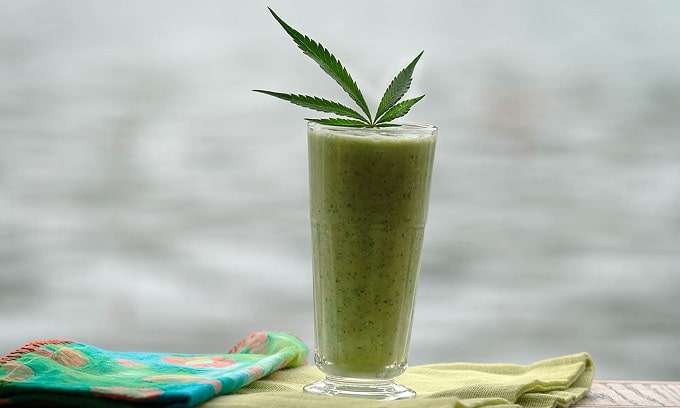 The best practice is to use freshly picked cannabis buds or live cannabis buds. You can use dry cannabis buds, but it will not provide the same potential benefits or desired effects as fresh cannabis.
The best practice is to use freshly picked cannabis buds or live cannabis buds. You can use dry cannabis buds, but it will not provide the same potential benefits or desired effects as fresh cannabis.
Raw Cannabis Juice
You can make fresh cannabis juice at home if you cannot get it at your local restaurant or juice bar. If you have access to fresh cannabis flowers, you can add them to any juice you make at home.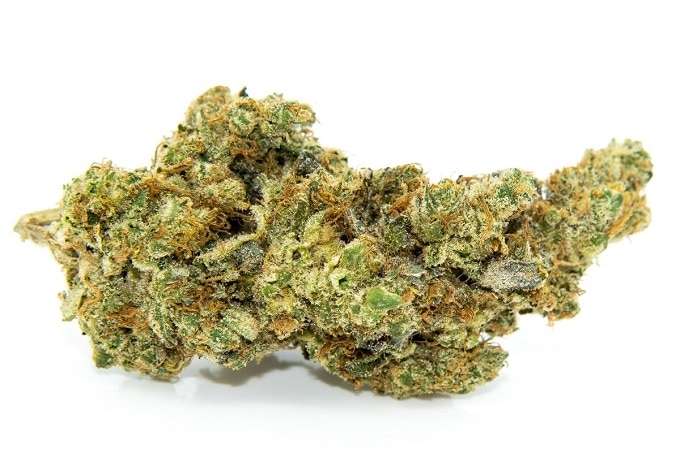 If you want to benefit from the medical properties of cannabis, it is best not to cook it or smoke it. Not heating the cannabis bud will preserve the antioxidant and neuroprotective properties of any non-psychoactive compound such as THCA and CBDA.
While researching CBD, some scientists are looking into the consumption of dietary cannabis, the bioavailability and absorption of CBD, and how it may impact gut health. The research may soon provide valuable insights into the benefits of consuming raw cannabis juice.
If you want to benefit from the medical properties of cannabis, it is best not to cook it or smoke it. Not heating the cannabis bud will preserve the antioxidant and neuroprotective properties of any non-psychoactive compound such as THCA and CBDA.
While researching CBD, some scientists are looking into the consumption of dietary cannabis, the bioavailability and absorption of CBD, and how it may impact gut health. The research may soon provide valuable insights into the benefits of consuming raw cannabis juice.
THCA Tincture
If you do not have access to fresh cannabis buds to make smoothies or juices, you can always go for THCA tinctures. Although THCA tinctures are not as popular as THC or CBD tinctures, they are widely available in many legal dispensaries and quite popular among medical marijuana users.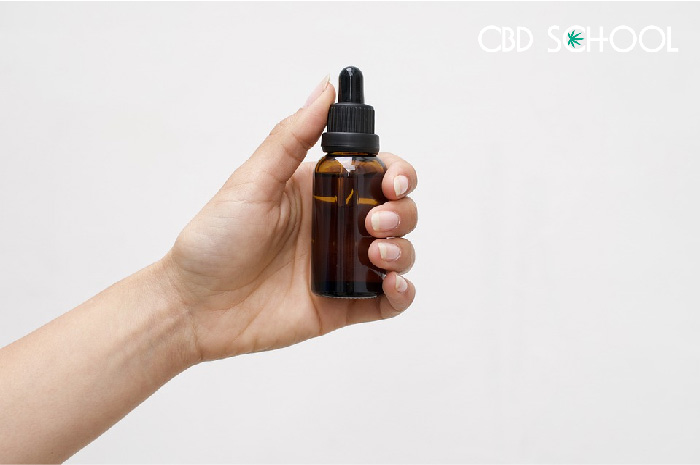 Some users recommend THCA tinctures because they help relieve chronic pain tremendously. It reduces pain and improves the quality of life. It can also reduce the frequency and intensity of migraine pain.
If you want a pain reliever for menstrual problems, enhance your emotional well-being, and be able to enjoy a good night’s sleep, give THCA tinctures a try. Many anecdotal references vouch for it.
THCA tinctures can become a popular product soon. THCA oil is sold in Virginia, just next to the CBD products in legal dispensaries. It will not be surprising that other states will quickly change their stance on marijuana legality.
Some users recommend THCA tinctures because they help relieve chronic pain tremendously. It reduces pain and improves the quality of life. It can also reduce the frequency and intensity of migraine pain.
If you want a pain reliever for menstrual problems, enhance your emotional well-being, and be able to enjoy a good night’s sleep, give THCA tinctures a try. Many anecdotal references vouch for it.
THCA tinctures can become a popular product soon. THCA oil is sold in Virginia, just next to the CBD products in legal dispensaries. It will not be surprising that other states will quickly change their stance on marijuana legality.
THCA Oil Laws and Regulations
The United States expanded its medical cannabis laws in 2018. Based on the new policy signed in March 2018, THCA and CBD oil are now legal for medical use. Dispensaries started selling THCA oil by the end of 2019. Check out the CBD School Laws on CBD, State by State Why was THCA allowed for medical use? The lawmakers understood that THCA effectively prevents epileptic seizures. Although lawmakers proposed CBD as the only permitted cannabinoid under the marijuana law, they eventually included THCA citing the entourage effect as the reason. The Controlled Substances Act does list marijuana, but it does not list THCA. It can be quite confusing, I get it.The Best Alternative for THCA
While THCA is a promising cannabinoid with many medicinal benefits, it is not legal in all states. There is an absence of currently accepted medical use of the cannabinoid. The best alternative is cannabidiol (CBD). It also starts in its acidic form called cannabidiolic acid (CBDA) and eventually converts into CBD when the cannabis flowers are processed. Related Subject: Check out the best CBD oils rated by CBD School. According to CBD statistics in America, most users take CBD primarily for pain relief, anxiety, and insomnia. CBD is helping police responders fight stress, relieve pain, and get better sleep. The statistics do correspond to CBD use in the police force. However, the manufacturers of CBD products have to navigate complex CBD regulations to ensure that they do not break any law. CBD is abundant in hemp, Cannabis Sativa variety that does contain less than 0.3% THC. Any product that has more than 0.3% THC is prohibited by law. It is vital to determine cannabinoid levels in all products to ensure legality. That said, CBD is the most abundant cannabinoid for medical use. Like THCA, it can provide a variety of medical benefits. It can reduce pain and anxiety, prevent insomnia, protect the nervous system, help fight cancer, and many more.Final Thoughts on Tetrahydrocannabinolic Acid
Could THCA become as prominent as CBD and other cannabis products? There is a good possibility, but that depends on further research into the medical benefits of the cannabinoid. So far, we know that the THCA molecule is the acidic form and the precursor of THC. The THCA in cannabis flower will not cause any psychoactive effect unless heated or decarboxylated. Preliminary research into THCA shows that it has anti-nausea, anti-inflammatory, anti-cancer, and neuroprotectant properties. Nevertheless, there is still a need for further research into its therapeutic potential. THCA is abundant in fresh cannabis buds and can be added to smoothies and fresh juices. If you have no access to fresh cannabis flowers, you can go for THCA in its tincture form. Finally, your best alternative is CBD should you choose to try something else.References
Muller C, Morales P, Reggio PH. Cannabinoid Ligands Targeting TRP Channels. Front Mol Neurosci. 2019;11:487. Published 2019 Jan 15. doi:10.3389/fnmol.2018.00487
Moreno-Sanz G. Can You Pass the Acid Test? Critical Review and Novel Therapeutic Perspectives of Δ9-Tetrahydrocannabinolic Acid A. Cannabis Cannabinoid Res. 2016;1(1):124-130. Published 2016 Jun 1. doi:10.1089/can.2016.0008
Rock EM, Kopstick RL, Limebeer CL, Parker LA. Tetrahydrocannabinolic acid reduces nausea-induced conditioned gaping in rats and vomiting in Suncus murinus. Br J Pharmacol. 2013;170(3):641-648. doi:10.1111/bph.12316

